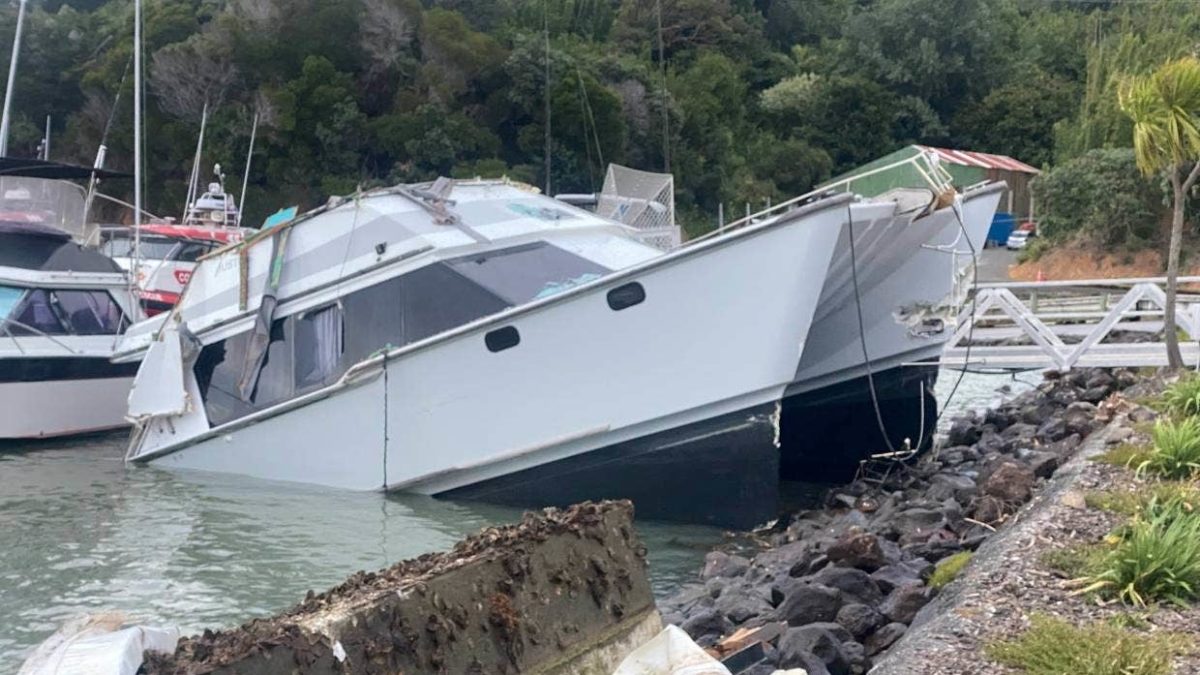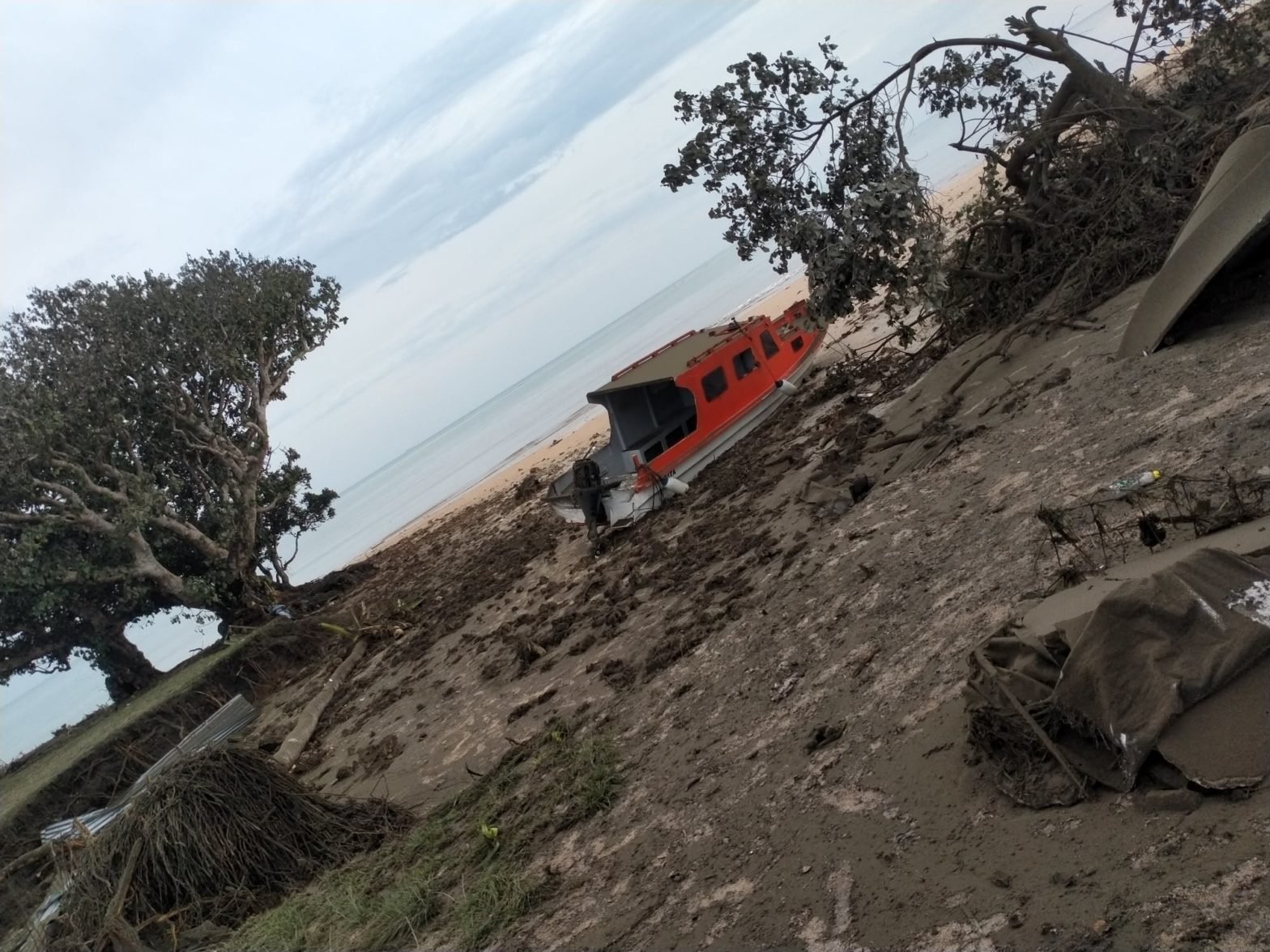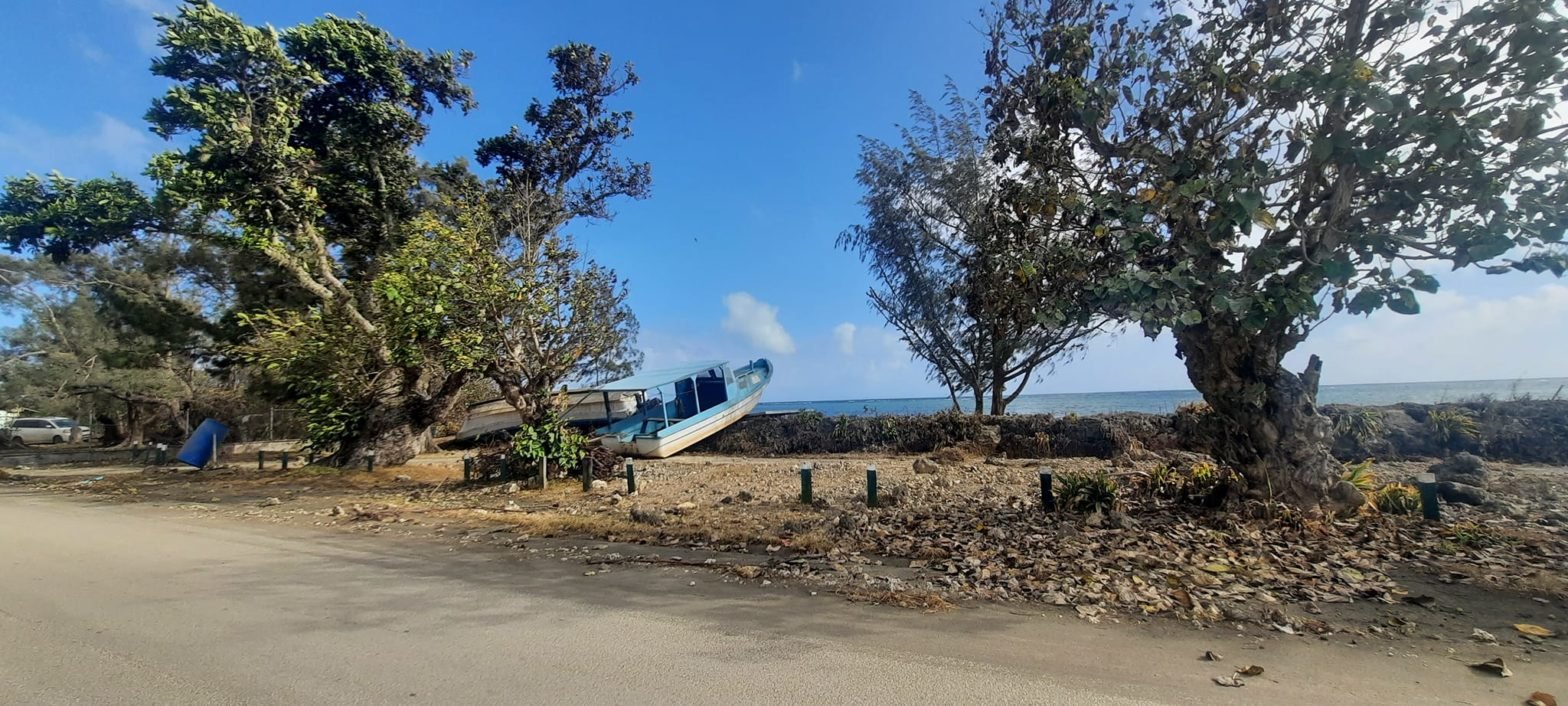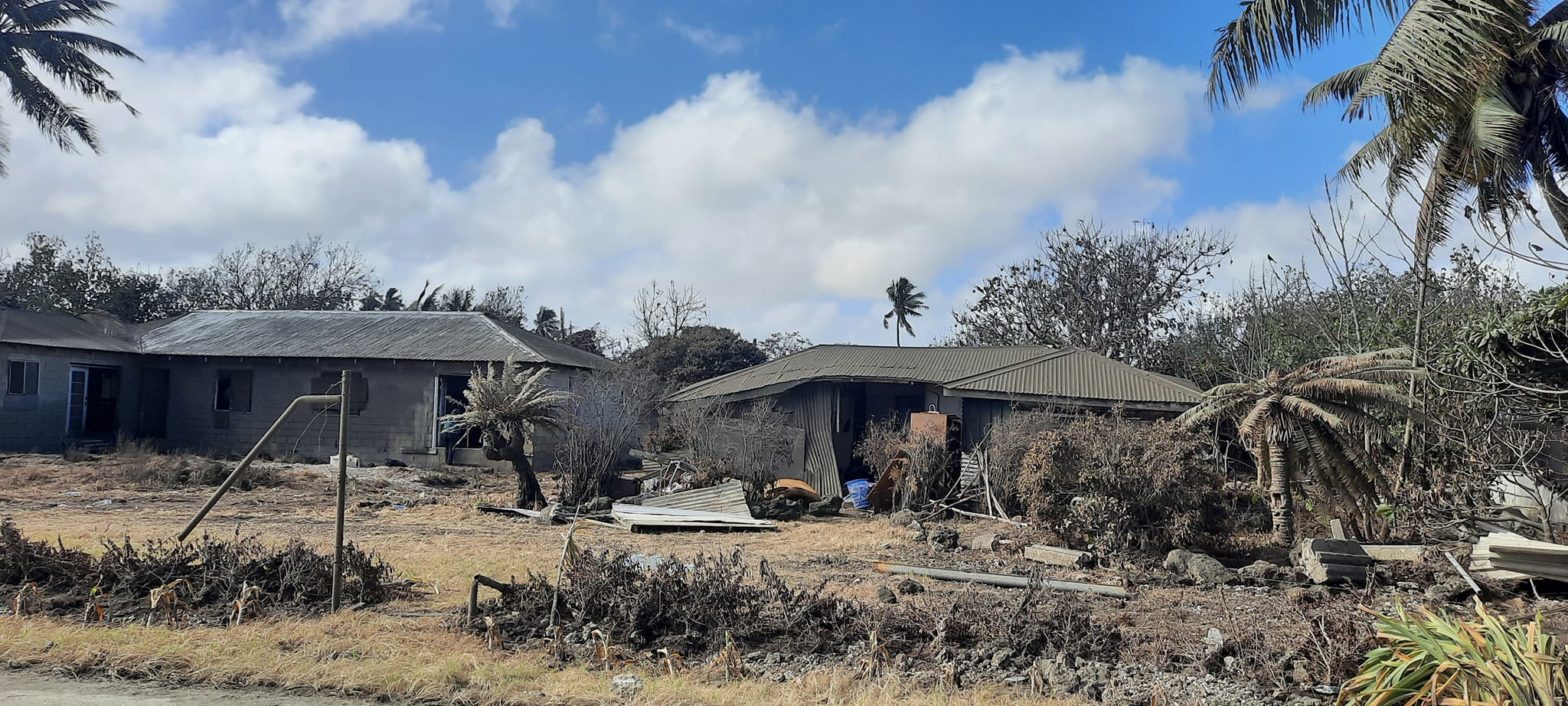Scientist says it was surprising to see the waves travel so far from the volcanic eruption near Tonga
Scientists are interested in what tsunami impacts were experienced in New Zealand from the Tongan eruption, after acknowledging they do not know a lot about tsunamis caused by volcanic eruptions.
The eruption of the Hunga-Tonga-Hunga-Ha’apai volcano on Saturday sent literal shock waves around the world and was the most explosive eruption in 30 years.
Within minutes, it resulted in a devastating tsunami in Tonga, followed by tsunami surges in New Zealand, and as far away as Japan, South America – where two women reportedly died in Peru – and even in the Caribbean.
Niwa tsunami scientist Dr Emily Lane said it was surprising to see the waves travel so far from the volcanic eruption.
As 95 per cent of tsunamis were caused by earthquakes, scientists were set up with seismic monitors around the world, but tsunamis caused by volcanoes were a lot less predictable, she told Stuff.
There are a range of things that could have happened to cause the tsunami, and Lane said it was likely the shock waves, which were heard around the world, created atmospheric pressure changes that reinforced the waves with extra energy.
In New Zealand, the tsunami caused millions of dollars in damage at Tutukaka Marina, where eight to 10 boats sunk and structures were damaged.
Some structures, including oyster farms, were also damaged at Whangaroa Harbour.
Hunga Tonga-Hunga Ha’apai volcano is about 60km north of Tongan capital Nuku’alofa and about 2000km north-east of Auckland.
But the waves were also experienced on the west coast of Northland, where a group fishing for flounder in Hokianga Harbour had to run for their lives as water surged up around them.
Lili Mullane told Stuff the water suddenly went out 50m then came rushing around them to about 1m high, inundating the shore.
The group managed to escape by running, then driving, through the water, driving onto private farms to get away.
Lane said information about such experiences will add to scientists’ knowledge about tsunamis caused by volcanoes, and she encouraged people to share what they saw.
“It’s really tricky because we didn’t know what to expect from this.”
A colleague visited Tutukaka, where no inundation was observed, she said.
The marina was impacted because of the shape of the bay which created a resonance in the tsunami waves, and the impact of Cyclone Cody, which also caused surges, Lane said.
More warning should have been given – Tutukaka resident says.
Tutukaka resident Tim Alexander, whose boat Justice was badly damaged in the tsunami, said he was extremely disappointed in the lack of warning from Civil Defence.
A national advisory was issued at 8.15 pm on Saturday to warn of strong and unusual currents and unpredictable surges, but there was no activation of the tsunami sirens nor phone notification.
The tsunami sirens, which warn people to seek more information, were most recently activated on 5 March 2021, in response to earthquakes in the Kermadec Islands.
But the sirens are used to warn of land evacuations, not threats to the water, and there was no need for a widespread evacuation for people on land, Northland Civil Defence Emergency Management spokesman Murray Soljak earlier told Stuff.
But Alexander said it was “extremely lucky” no one died, with many people who live aboard their boats not being aware of the advisory.
“The reality of the situation is that we had a 1.5–2m wave come into Tutukaka Harbour and then the marina. This was what I saw on the CCTV, and what many eyewitnesses saw when it occurred.”
The force of the wave was shown by the damage to boats, with red sailing catamaran Amphitreete being picked up by the wave and thrown onto Alexander’s boat’s flybridge.
Lane reinforced the idea that the sirens are for warning people of a land evacuation but admitted the volcanic tsunami was difficult to predict.
She encouraged anyone with information about the tsunami surges in New Zealand, especially land inundation, to email her on [email protected]
Meanwhile, local business Dive! Tutukaka will be operating again from Saturday after its boats were relatively unscathed from the tsunami.
Owner Jeroen Jongejans said the marina was closed, but the marina trust was being very accommodating by giving the business a few timeslots to get in and out, so it can operate its “chocka block” sailings.
This story was produced by Denise Piper, originally published at Stuff NZ on 21 January 2022, reposted via PACNEWS.




